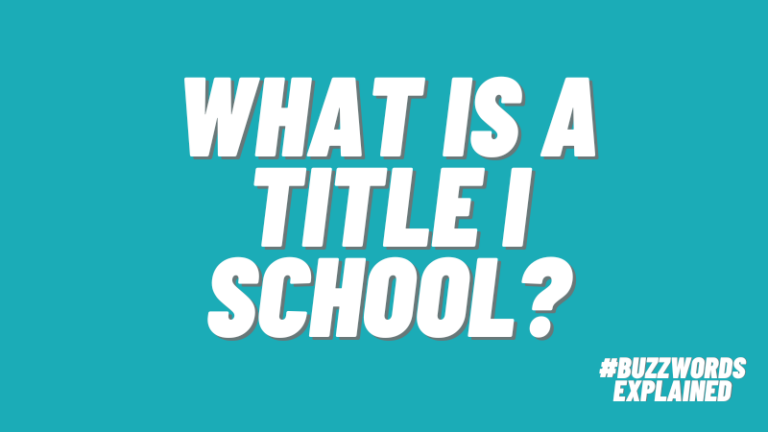I taught in Title I schools for my first five years of teaching. Title I, if you’re not familiar, is a part of the Elementary and Secondary Education Act that provides financial assistance to schools with a high percentage of kids from low-income families. But that assistance—as any Title I teacher will tell you—isn’t enough to give kids what they need.
During my time in Title I schools, I found I was always coming up short. I needed more time. More energy. More resources. More supplies. More hands in the classroom. More money. More people on my side.
The truth is that all teachers could use more help. I haven’t met a teacher in any school I’ve been in that could tell me, “Wow, I just have too much time, money, and resources. I just don’t know what to do with it all!” But what is also true is this: Title I teachers are dealing with the already-crazy world of teaching, but with a tremendously powerful and sometimes invisible set of forces working against them against them every day.
That’s a lot of sad news. But here’s the good news: there are a lot of people who want to help. Some of them just need to know how.
Using information from my time in Title I schools as well as input from teachers in Title I schools across the country, I put together a list of the best ways to support teachers in Title I schools and the children they serve.
1. Donations.
Teachers need things.These were definitely the most voiced by teachers as ones they are constantly running out of and/or having to restock themselves.
- Books. A great donation is age-appropriate books collecting dust around your house. A better donation is picking out some newer titles of high-interest hardback (they last longer) books. The best donation is a gift card to the bookstore!
- Reams of printer paper
- Pencils–preferably quality ones that won’t shred the pencil sharpener
- Kleenex
- Expo markers The brand does matter—off-brand markers tend to stain the board.
- Snacks for kids who come to school hungry Non-perishables like granola bars, crackers, and dried fruit are great options with few allergens.
- New or used calculators, especially graphing ones for high school math/science
- Gently used clothes and coats
Also, many teachers have Amazon Wishlists or pages on Donors Choose with individualized lists of what they need. If you own a business, consider sponsoring a teacher or school and providing them some or all of what they need on a weekly basis—it would be much faster and simpler than waiting on district paperwork in many cases.
2. Your presence.
I can’t tell you how important just the presence of non-teachers is in a Title I school. Not only is it fun for our kids, but the message it sends to kids is invaluable: your community cares about and is invested in your future. Here are some ways you could consider donating your time.
- Be a reading buddy, tutor, or mentor. You might think this would only be helpful in elementary classrooms, but I would have KILLED* for someone to come in every week and just read a book, out loud, cover-to-cover, and talk about it alongside one of my 8th graders.
- Bring in your expertise. Whether you’re a business guru, master gardener, or computer person, our students have a lot to learn from you! Clearly some of their teachers do too, as evidenced by my use of the term “computer person.” A friend of mine came in and taught yoga to a few of my classes one year and they loved it.
- Help organize, clean, or decorate. Can you put books in alphabetical order? Organize supplies into bins? Wipe down boards with a paper towel? Staple paper to a bulletin board? Congratulations! Volunteering to do any of these tasks in a classroom qualifies you as an American hero. At least to a teacher.
3. Your support and encouragement.
Just as important as donations and time to a teacher is the respect and support of the public. One of the most important things a person can do to support a Title I teacher is to get rid of negative assumptions about Title I schools and the people who work in and are served by them. Title I teachers aren’t there because they couldn’t find a job in a school in a wealthy area; they are there because they want to be.
Let a Title I teacher know that you notice the work they do and care about it. Show them you believe and have faith in their students.
4. Your vote.
Your vote matters in education, for all types of schools. Go to school board meetings. Pay attention to your elected leaders’ response to the needs of public education. Vote people into office who have a strong past of supporting public education and ending educational inequality. And if someone is in office who has a history of trying to destroy public education, say, a Secretary of Education, call your senator to oppose their appointment.
*Not literally. But I might have figuratively killed.
What are some other ways to support Title I teachers and students?

